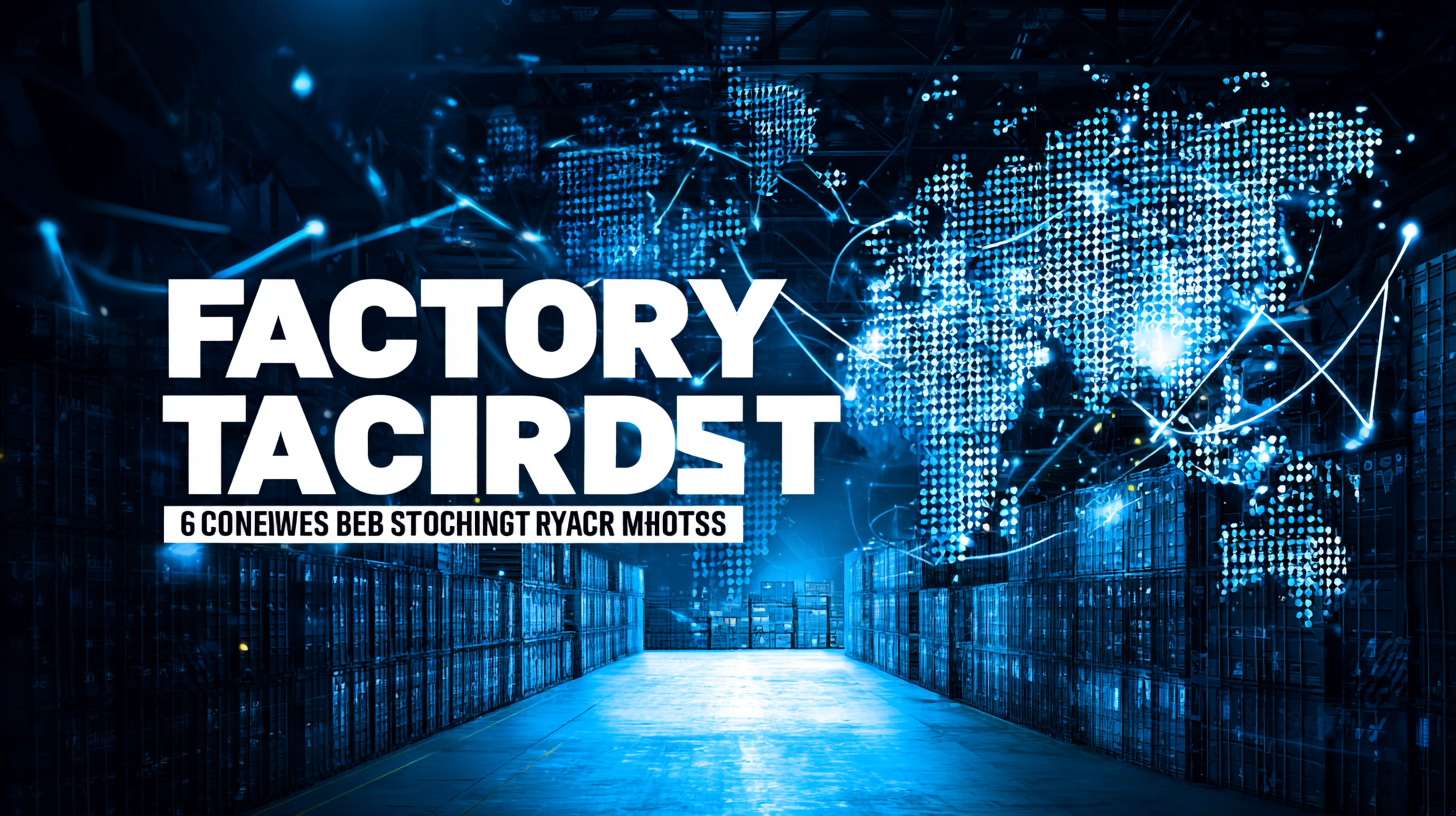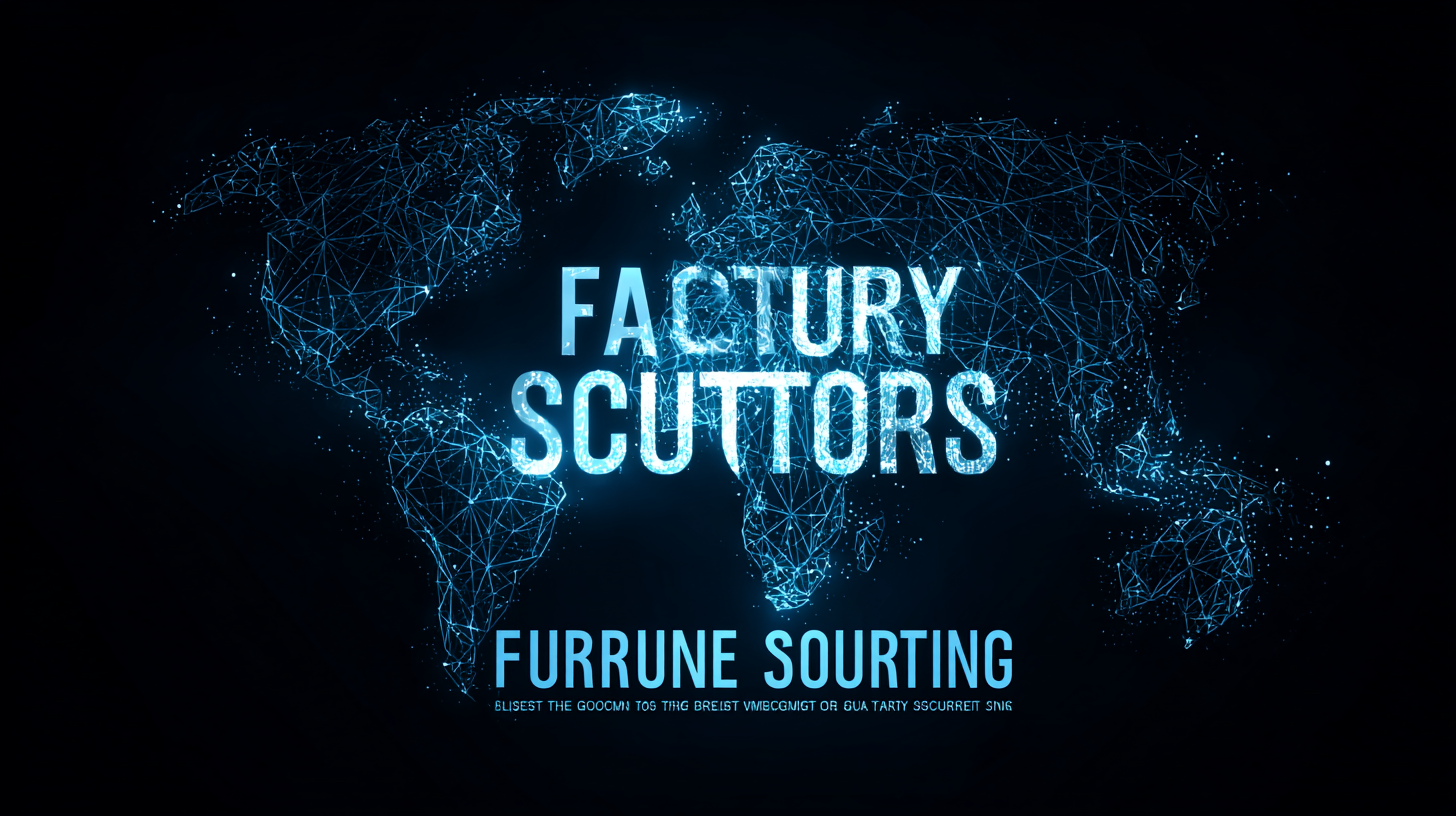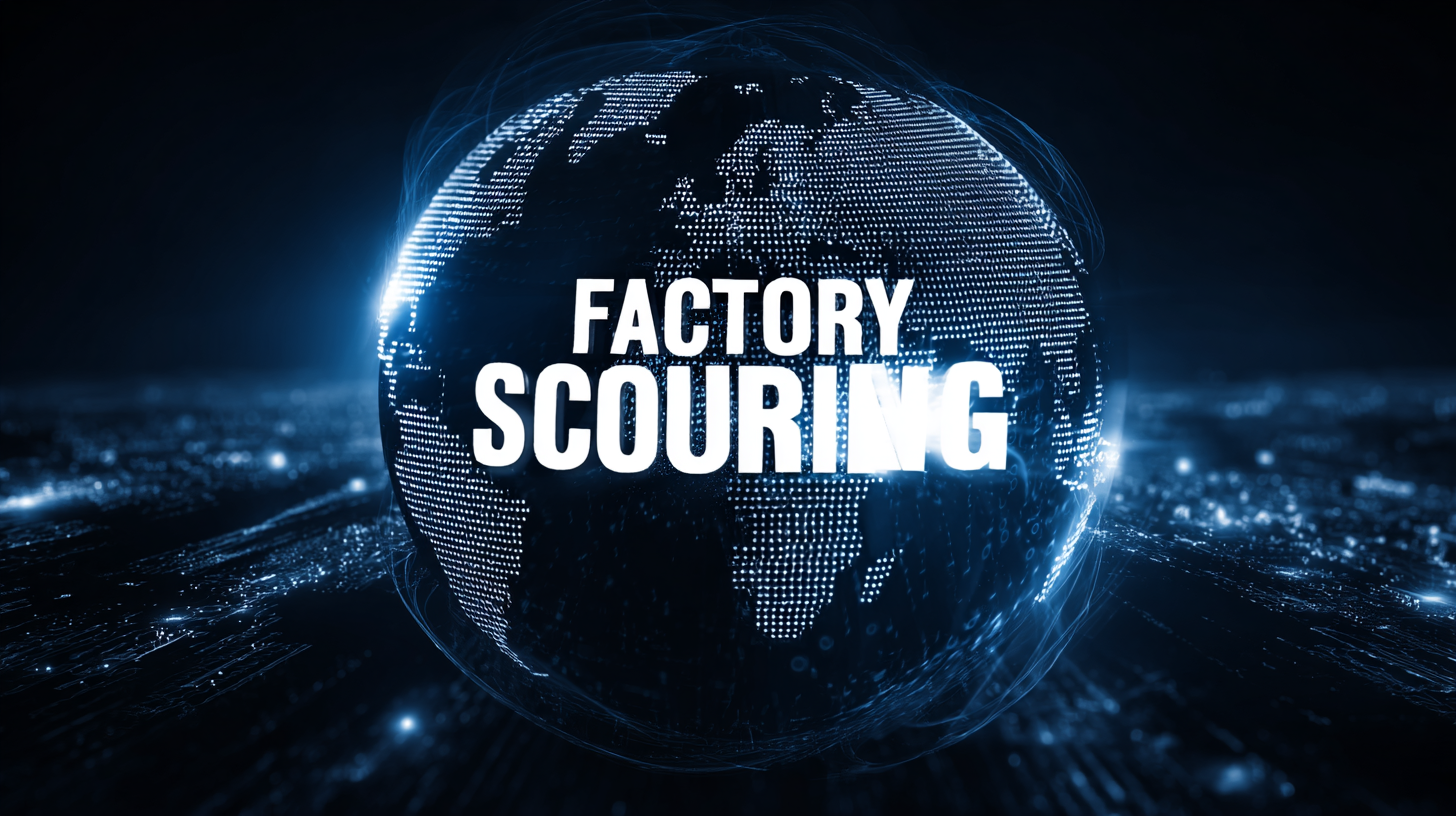
Future Trends in Global Sourcing Market Analysis with Best Factory Examples for 2025
In the rapidly evolving landscape of global sourcing, understanding the characteristics and applicability of different product types is crucial for businesses aiming to stay competitive. As we look towards 2025, the dynamics of the sourcing market are expected to shift significantly, influenced by technological advancements, consumer preferences, and geopolitical factors. This blog will explore the future trends of global sourcing, highlighting the significance of selecting the right factory for various product categories. By examining best factory examples, we will gain insights into how these manufacturing hubs can adapt to changing demands, ensuring efficiency and sustainability. With a focus on the diverse product types and the unique features associated with each, companies can better strategize their sourcing decisions to optimize their supply chain operations and enhance overall performance.

Future Sourcing Strategies: Adapting to Changing Global Dynamics
In a rapidly changing global landscape, businesses must adapt their sourcing strategies to thrive in the coming years. The shifting dynamics driven by economic fluctuations, technological advancements, and environmental considerations necessitate a more agile approach to sourcing. Companies should embrace digital tools and data analytics to gain real-time insights into market trends, allowing them to make informed decisions quickly. This will not only enhance operational efficiency but also reduce risks associated with supply chain disruptions.
Furthermore, sustainability is becoming an essential factor in sourcing strategies. Consumers are increasingly demanding transparency and ethical practices, prompting companies to prioritize environmentally friendly suppliers. In 2025, evaluating potential sourcing partners will require a thorough assessment of their commitment to sustainability and fair labor practices. As a result, businesses that actively seek partnerships with ethical manufacturers will not only strengthen their brand reputation but also secure a competitive edge in the market. Emphasizing collaboration and innovation in supplier relationships will be crucial as organizations navigate the complexities of global sourcing in the years to come.
Future Trends in Global Sourcing Market Analysis (2025)
Key Industry Trends Shaping the 2025 Global Sourcing Landscape
As we look ahead to 2025, several key industry trends are poised to reshape the global sourcing landscape. One of the most significant developments is the increasing emphasis on sustainability and ethical sourcing practices. Companies are under growing pressure from consumers and regulatory bodies to ensure that their supply chains are environmentally friendly and socially responsible. This trend is pushing sourcing leaders to integrate sustainability into their procurement processes, prompting a shift towards suppliers who prioritize eco-friendly practices and fair labor conditions.
 Additionally, technological advancements are transforming the global sourcing market. The adoption of artificial intelligence (AI) and machine learning is enabling companies to make data-driven decisions that enhance efficiency and optimize supply chain management. Predictive analytics can forecast demand more accurately, allowing firms to streamline their operations and reduce costs. Furthermore, blockchain technology is enhancing transparency in the supply chain, fostering increased trust among stakeholders. As these technologies continue to evolve, they will play a crucial role in reshaping how businesses approach sourcing and supplier relationships by 2025.
Additionally, technological advancements are transforming the global sourcing market. The adoption of artificial intelligence (AI) and machine learning is enabling companies to make data-driven decisions that enhance efficiency and optimize supply chain management. Predictive analytics can forecast demand more accurately, allowing firms to streamline their operations and reduce costs. Furthermore, blockchain technology is enhancing transparency in the supply chain, fostering increased trust among stakeholders. As these technologies continue to evolve, they will play a crucial role in reshaping how businesses approach sourcing and supplier relationships by 2025.
Best Factory Examples: Innovations Driving Competitive Advantage
In the ever-evolving landscape of global sourcing, innovation is the key driver for companies aiming to maintain a competitive edge. As we look towards 2025, leading factories are embracing cutting-edge technologies and sustainable practices to streamline operations and enhance product quality. One notable example is the use of artificial intelligence and machine learning in supply chain management. These technologies enable factories to predict demand more accurately, reduce lead times, and optimize inventory levels, ensuring that they can respond swiftly to market changes.
Moreover, factories are increasingly adopting automation and robotics, which not only improve efficiency but also reduce operational costs. Companies like Siemens and Tesla are pioneers in this field, integrating advanced robotics into their manufacturing processes to minimize human error and enhance production speed. Additionally, sustainability initiatives, such as the circular economy and renewable energy usage, are becoming indispensable. Factories that adopt these practices not only meet consumer demands for greener products but also achieve significant cost savings and operational efficiencies. As these examples illustrate, innovations in manufacturing are not just about technology; they are also about creating a resilient framework that promotes agility, sustainability, and long-term growth in a competitive global market.
Navigating Import and Export Certifications for Global Trade Success
Navigating the complexities of import and export certifications is crucial for businesses aiming for global trade success in the evolving landscape of the global sourcing market. As we look ahead to 2025, understanding the variety of certifications required for different markets can make or break a company's ability to source and distribute products effectively. From product safety standards to environmental regulations, companies must stay updated on the specific documentation necessary to ensure compliance and avoid costly delays. Investing in knowledgeable teams or consulting experts in certification requirements can streamline this process and enhance market access.
Furthermore, real-world factory examples highlight the importance of adhering to import and export certifications. Leading manufacturers often differentiate themselves by preemptively aligning their operations with international standards, thus gaining a competitive edge. By observing these industry leaders, businesses can learn valuable lessons in cultivating robust supply chains that emphasize both quality and compliance. As the global sourcing market continues to evolve, cultivating an in-depth understanding of these certifications will be essential for companies looking to thrive in a competitive environment.
Practical Guide: How to Optimize Your Global Sourcing Practices
In the rapidly evolving landscape of global sourcing, optimizing practices has never been more critical. Organizations that prioritize the optimization of their working capital early in the transformation process can set a precedent for successful, quick changes. This proactive approach not only enhances operational efficiency but also positions procurement as a strategic function capable of adding significant business value. Leveraging advanced data analytics and artificial intelligence allows companies to revolutionize their procurement strategies, turning traditional practices into innovative pathways for success.

Furthermore, the increasing focus on responsible sourcing highlights the importance of ethical practices in supply chain management. As businesses aim to standardize responsible recruitment by 2026, understanding how to identify and address root causes of issues becomes essential. This commitment not only strengthens brand integrity but also appeals to a conscious consumer base, ultimately leading to sustainable business growth. As organizations look ahead, integrating deep learning and machine learning techniques into their supply chain management can further enhance efficiency, supplier selection, and inventory control, ensuring a competitive edge in the global market.
